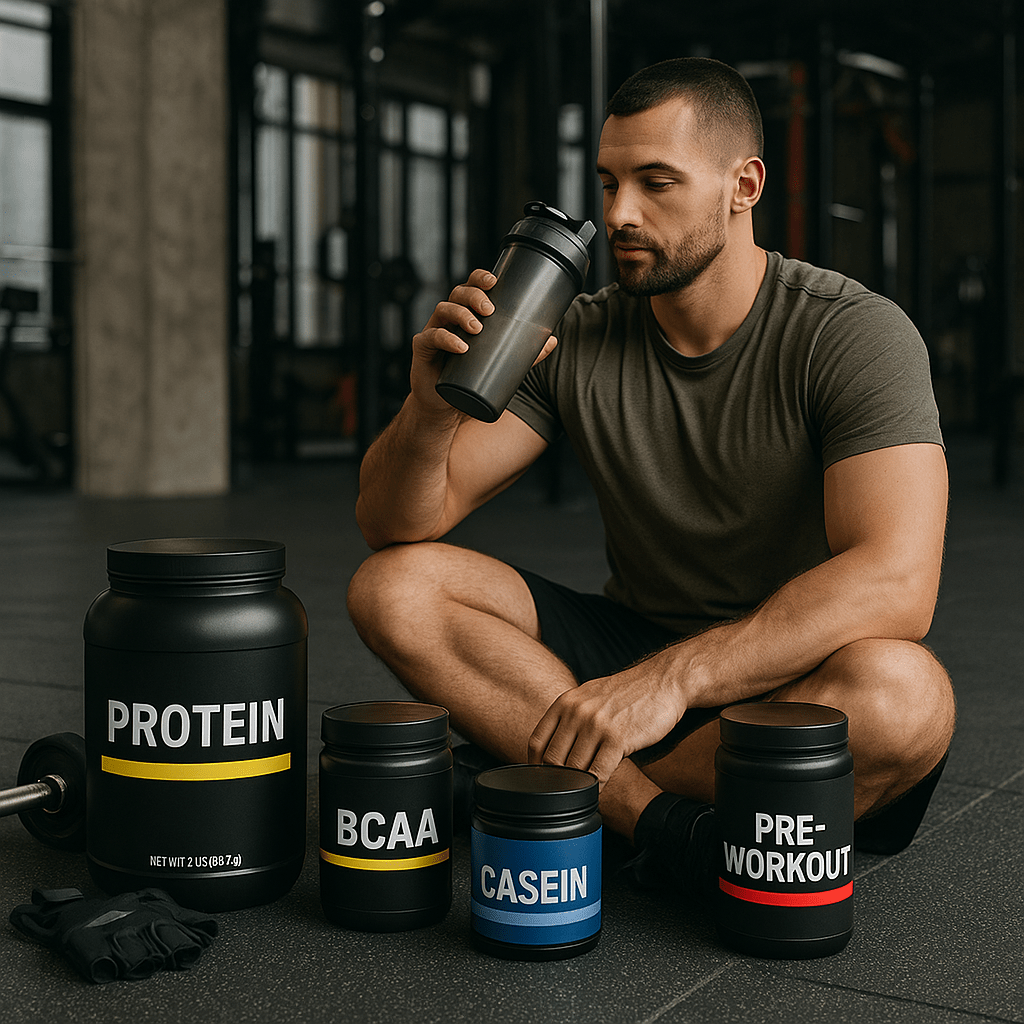Choosing the right protein powder can be overwhelming. With dozens of brands, flavors, and formulations on the market, it’s important to understand what actually makes a protein powder effective and worth your money. Whether you’re aiming for muscle gain, fat loss, or general wellness, knowing what to look for will help you achieve your goals faster and safer.
This guide will walk you through the key ingredients, types of protein powders, how they work, and what benefits you should expect—plus, helpful links to shop top-rated products.
Table of Contents
ToggleWhy Protein Powder Matters
Protein powders are concentrated sources of protein derived from animal or plant foods. They offer a quick, convenient, and versatile way to meet your daily protein needs—especially for athletes, bodybuilders, or anyone with a busy lifestyle.
Top Benefits of Protein Powder:
-
Builds and repairs lean muscle
-
Enhances muscle recovery after exercise
-
Aids in weight loss and appetite control
-
Supports metabolism and hormone function
-
Helps meet protein requirements without added fats/carbs
🛒 Shop Top Protein Powders
🔗 Explore Muscle Recovery Supplements
Types of Protein Powders: Which One Is Right for You?
Choosing the right type of protein is the first step. Each comes with its own benefits and ideal use cases.
1. Whey Protein (Concentrate & Isolate)
-
Whey Concentrate: Contains 70–80% protein with some lactose and fat
-
Whey Isolate: 90%+ protein with minimal lactose, ideal for lean muscle building
🛒 Try Whey Isolate for Clean Gains
2. Casein Protein
-
Slow-digesting; ideal for overnight muscle recovery
-
Provides a steady release of amino acids
🛒 Buy Micellar Casein for Overnight Support
3. Plant-Based Protein
-
Derived from peas, rice, hemp, or soy
-
Lactose-free and vegan-friendly
4. Egg White Protein
-
Fat- and dairy-free; high bioavailability
-
Great for people with dairy intolerance
Key Ingredients to Look For
Reading the label is critical when choosing a protein powder. Here’s what you should be paying attention to:
1. Protein Content per Serving
Look for powders that offer at least 20–30 grams of protein per serving.
2. Amino Acid Profile
High-quality protein powders include all essential amino acids, especially leucine, isoleucine, and valine (BCAAs), which are vital for muscle growth.
3. Sweeteners & Fillers
Avoid products with:
-
Artificial sweeteners like aspartame or sucralose (if you’re sensitive)
-
Fillers, gums, or additives that provide no nutritional benefit
Look for natural sweeteners like stevia or monk fruit, and check for minimal ingredient lists.
4. Digestibility Enhancers
Some powders include digestive enzymes like lactase or protease to help your body absorb the protein more efficiently and reduce bloating.
How Protein Powder Works in the Body
When you consume protein powder:
-
It breaks down into amino acids in your digestive system.
-
These amino acids are transported to muscle tissue.
-
Your body uses them to repair and grow new muscle fibers, especially after workouts.
Muscle Protein Synthesis (MPS)
Consuming 25–40g of protein after training triggers MPS, which leads to muscle growth. Whey protein is ideal here due to its fast absorption.
How to Choose the Best Protein Powder for Your Goals
🛒 Compare Protein Powders Side-by-Side
Common Mistakes to Avoid
❌ Choosing by Flavor Alone
Great taste doesn’t mean great nutrition. Always check the label for protein quality and ingredients.
❌ Ignoring the Ingredient List
Some powders include unnecessary fillers, sugar, or proprietary blends that hide true dosages.
❌ Overconsumption
More protein isn’t always better. Stick to your daily recommended intake—typically 1.6–2.2g per kg of body weight for active individuals.
Best Times to Take Protein Powder
1. Post-Workout (30–60 minutes after training)
Whey or hydrolyzed protein helps kickstart recovery.
2. Between Meals
Prevents muscle breakdown and controls appetite.
3. Before Bed
Slow-digesting casein protein keeps your body in a muscle-building state overnight.
Frequently Asked Questions (FAQs)
Is protein powder safe for daily use?
Yes, as long as you’re not exceeding your daily protein needs. Quality matters, so opt for third-party tested brands.
Can I use protein powder for weight loss?
Absolutely. Protein helps control appetite and supports fat loss by increasing satiety and metabolism.
How should I mix my protein powder?
Use water, milk, or a plant-based alternative. You can also mix it into smoothies, oatmeal, or pancakes for added nutrition.
Conclusion: What Should I Be Looking for in Protein Powder?
The best protein powders combine:
-
High-quality protein sources
-
Complete amino acid profiles
-
Low or no fillers and additives
-
Good taste and digestibility
Whether you’re building muscle, losing fat, or simply trying to eat cleaner, choosing the right protein supplement is a cornerstone of fitness success.



